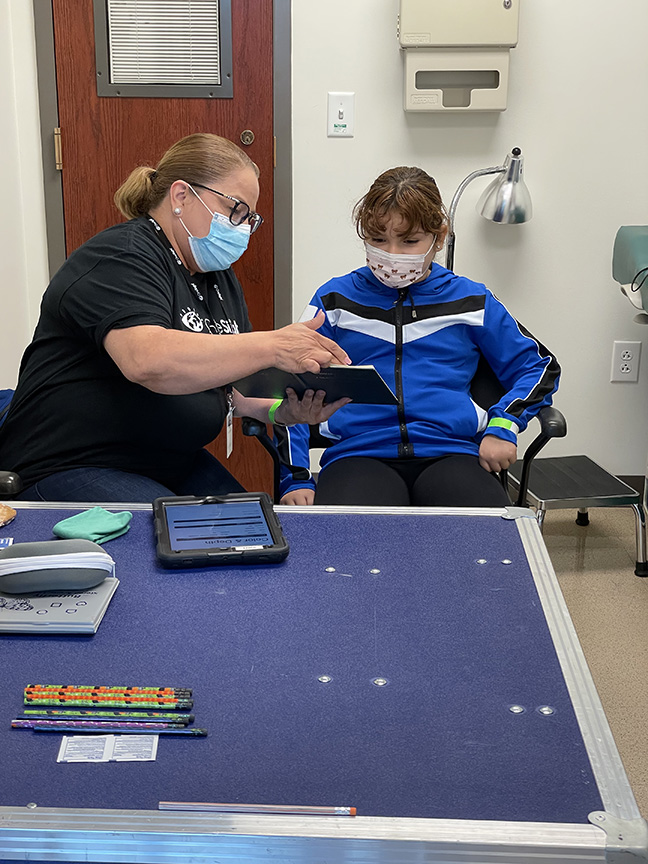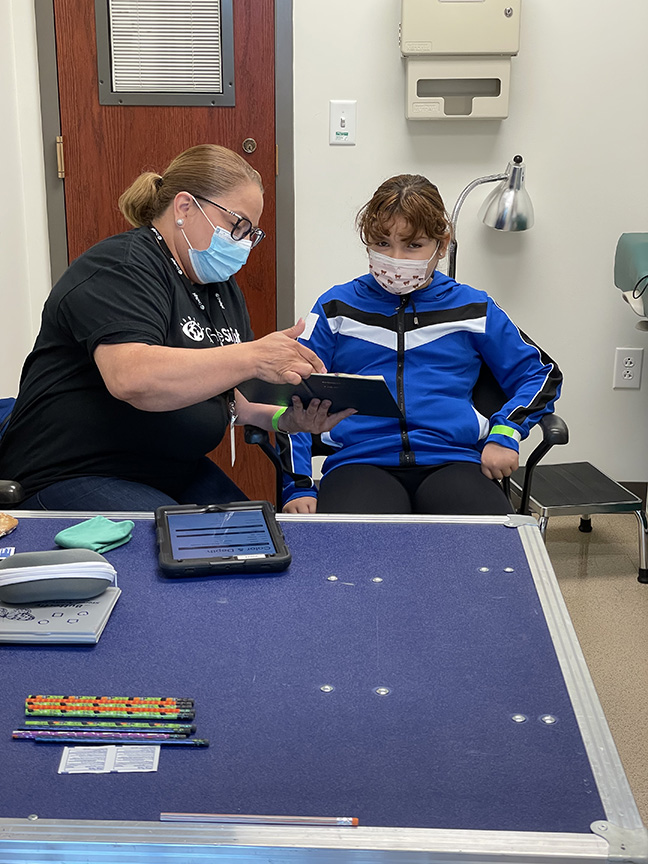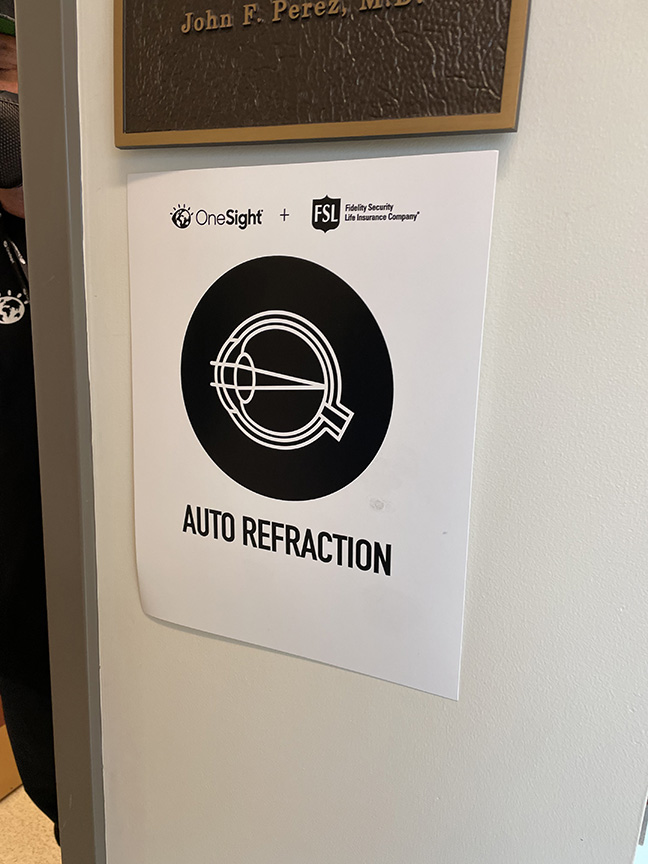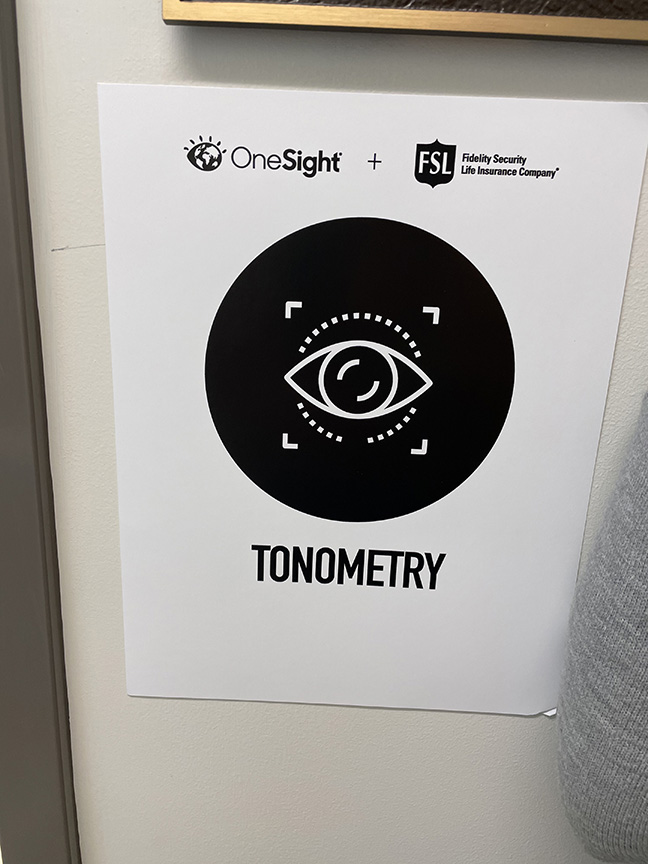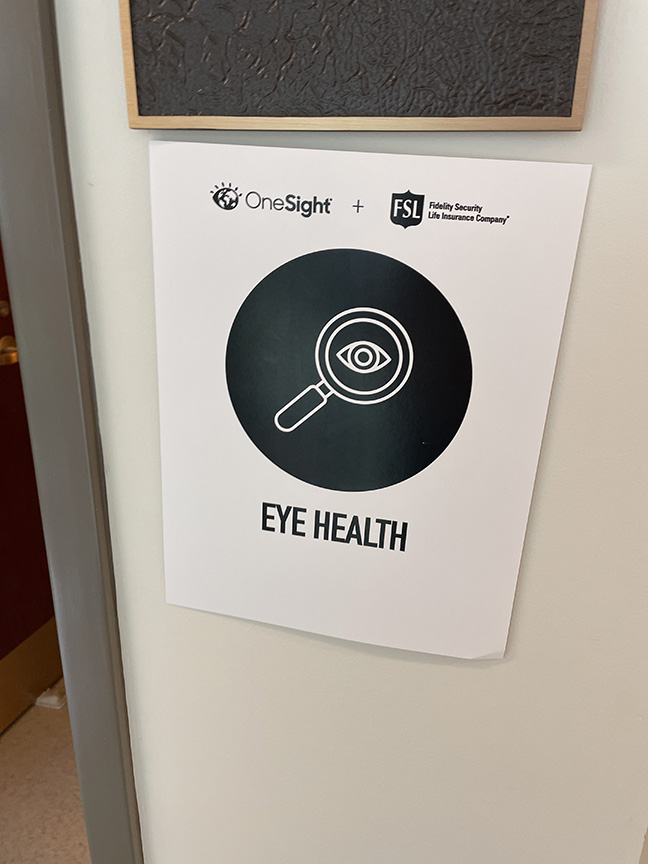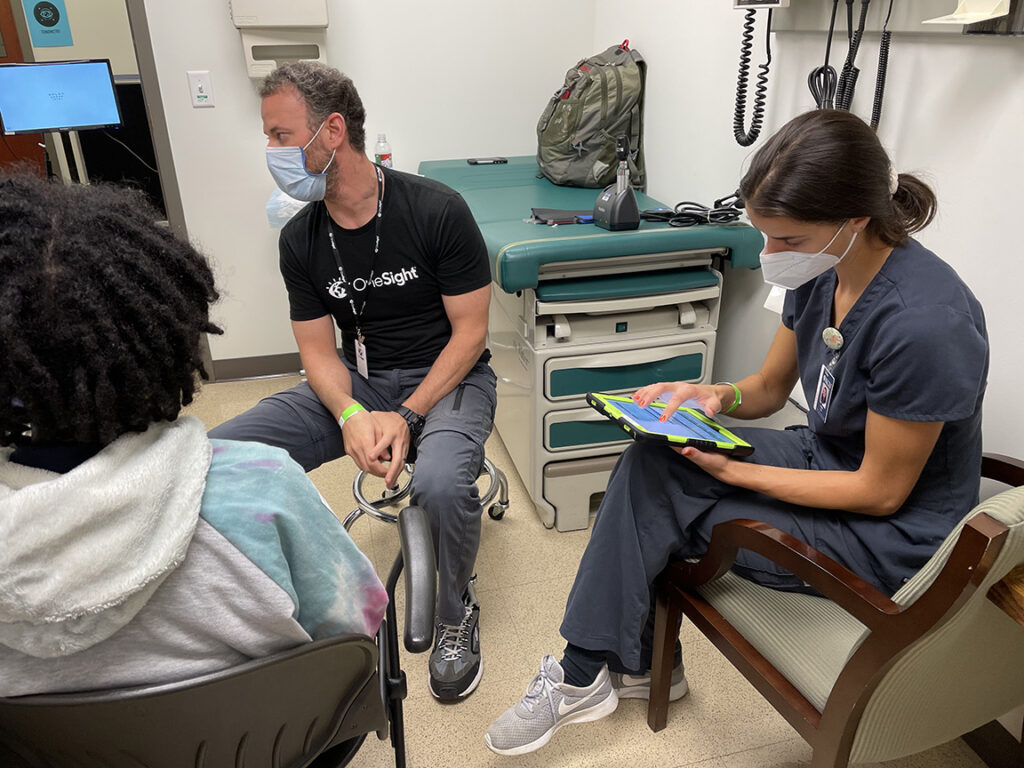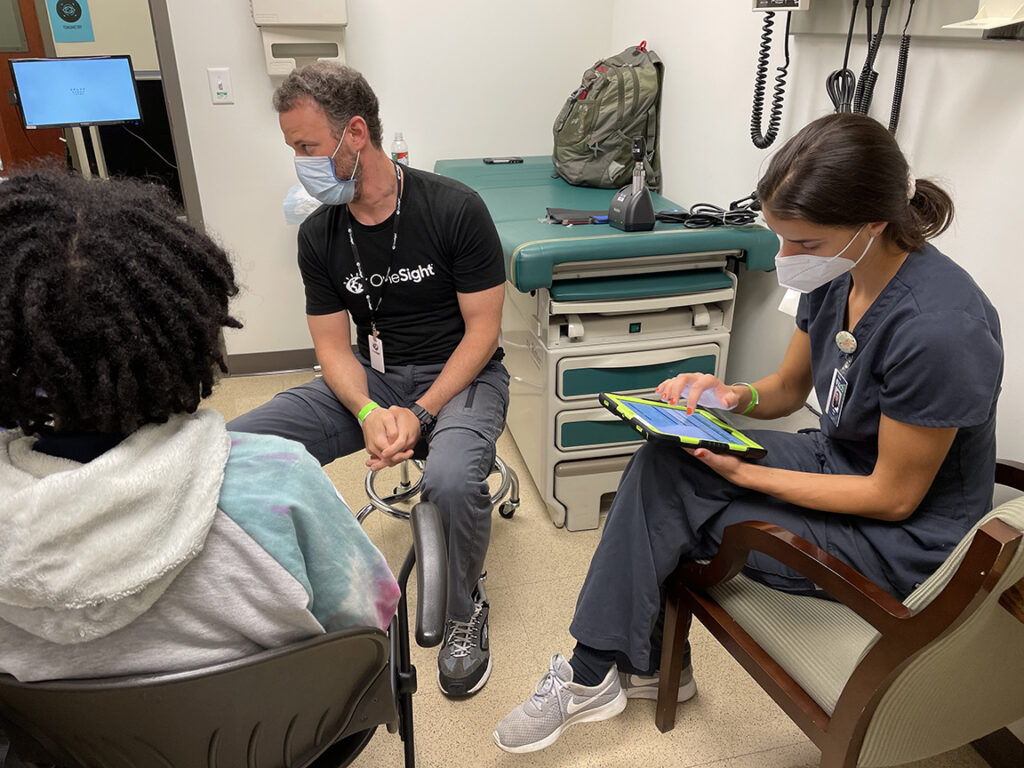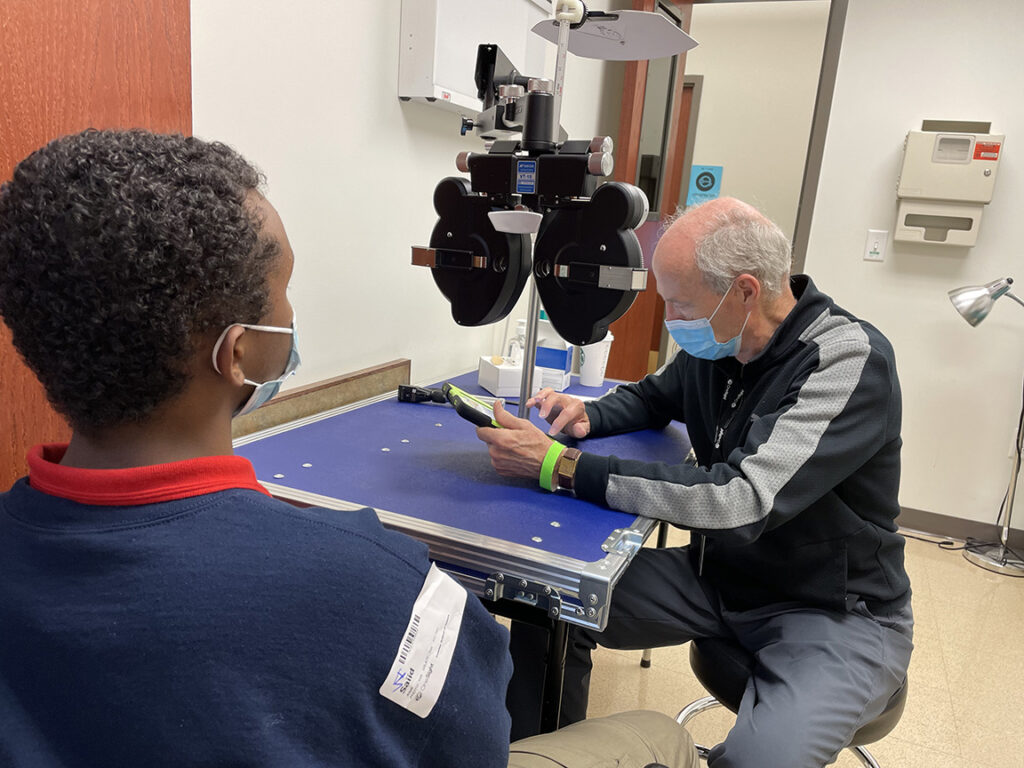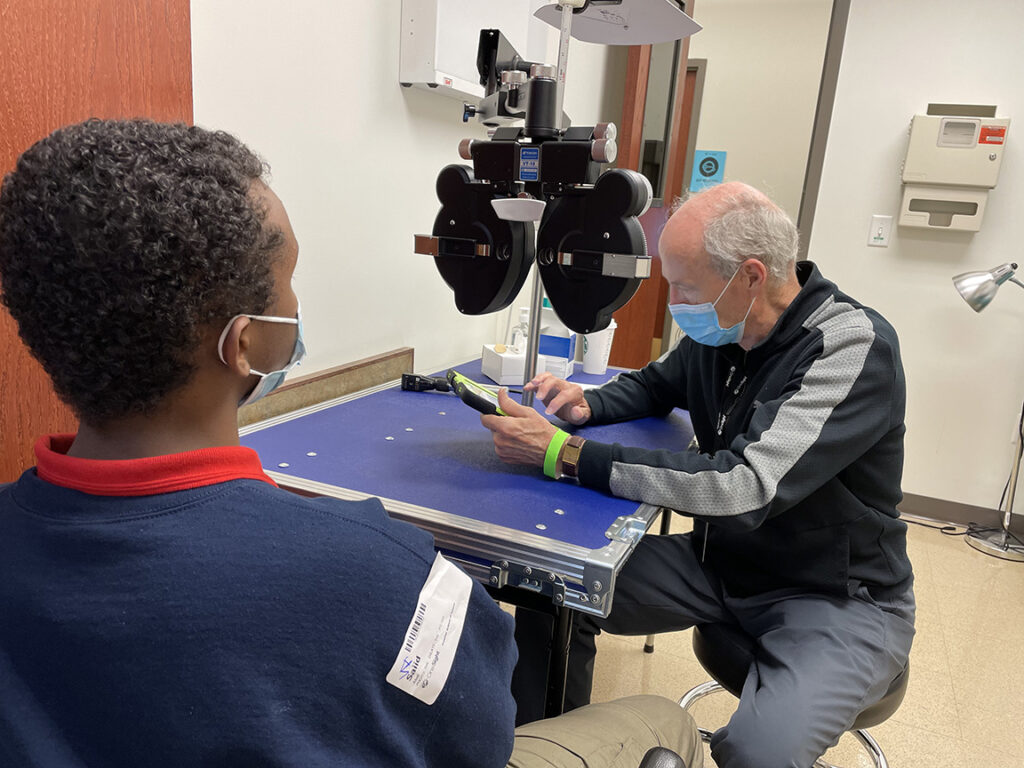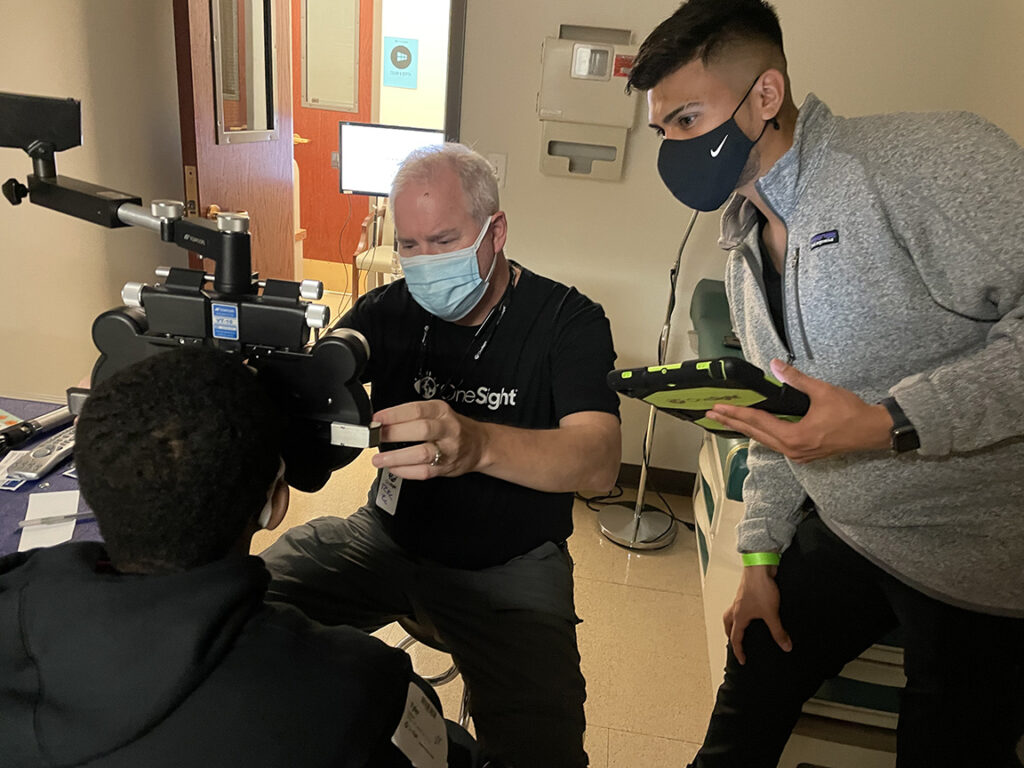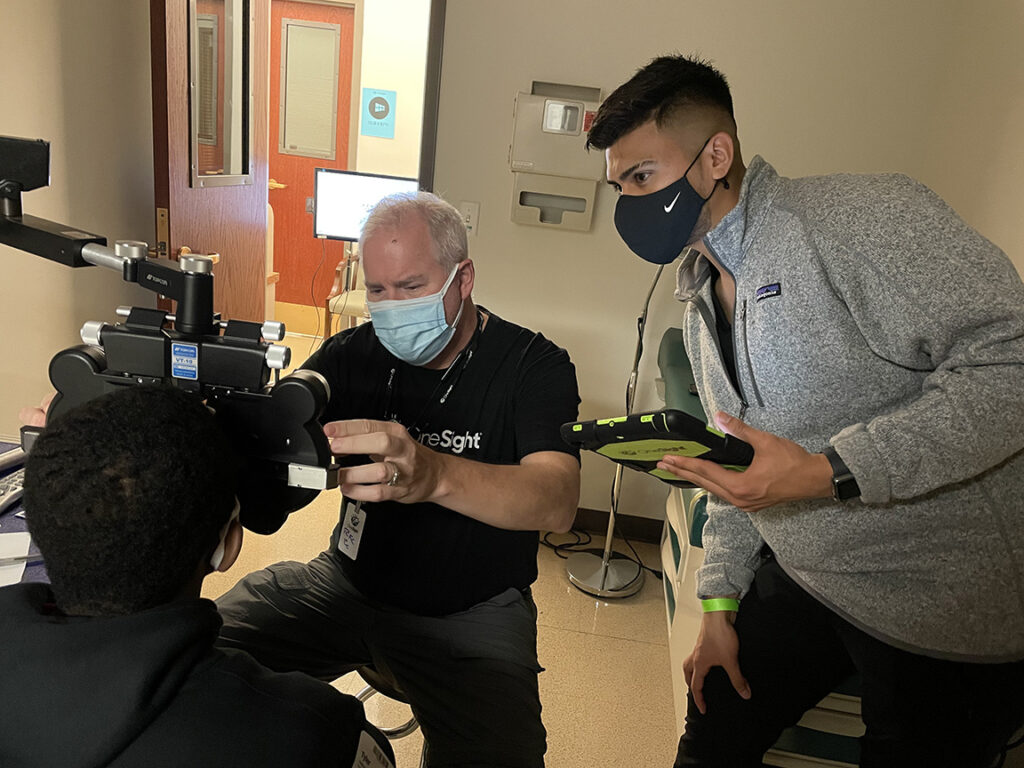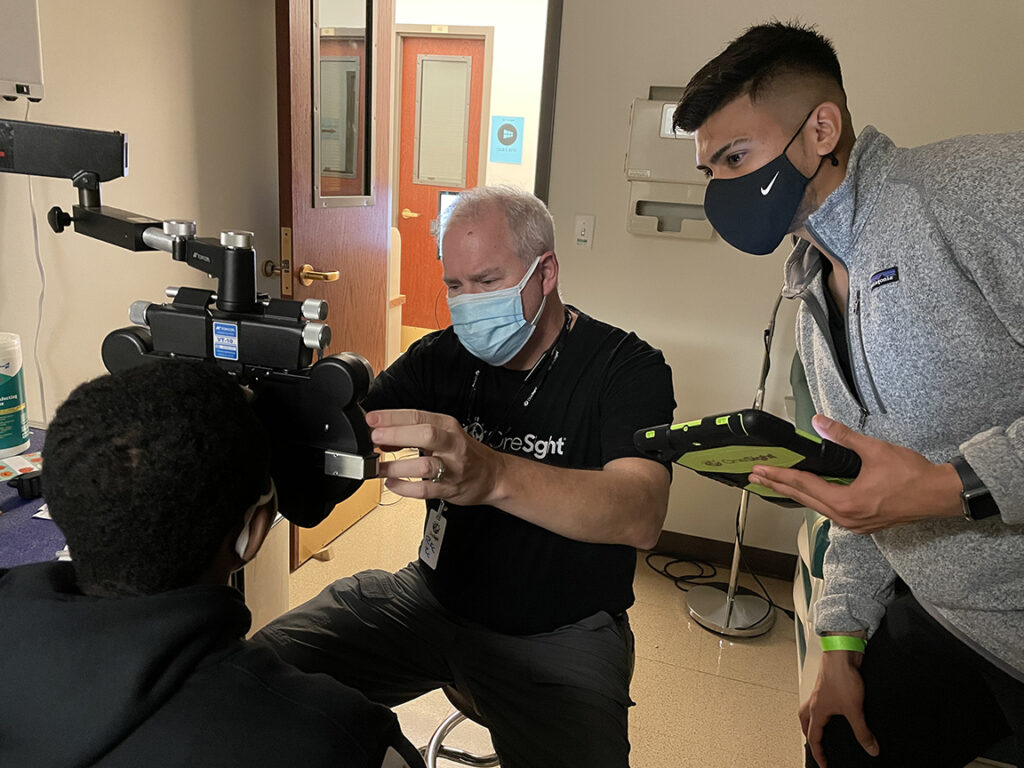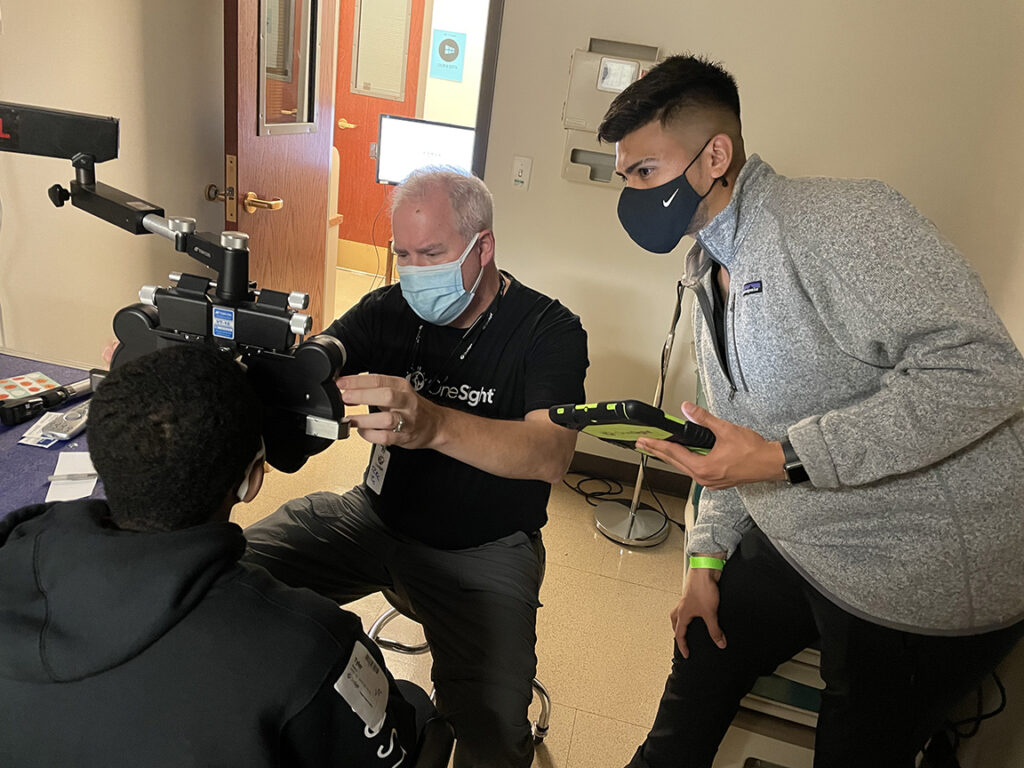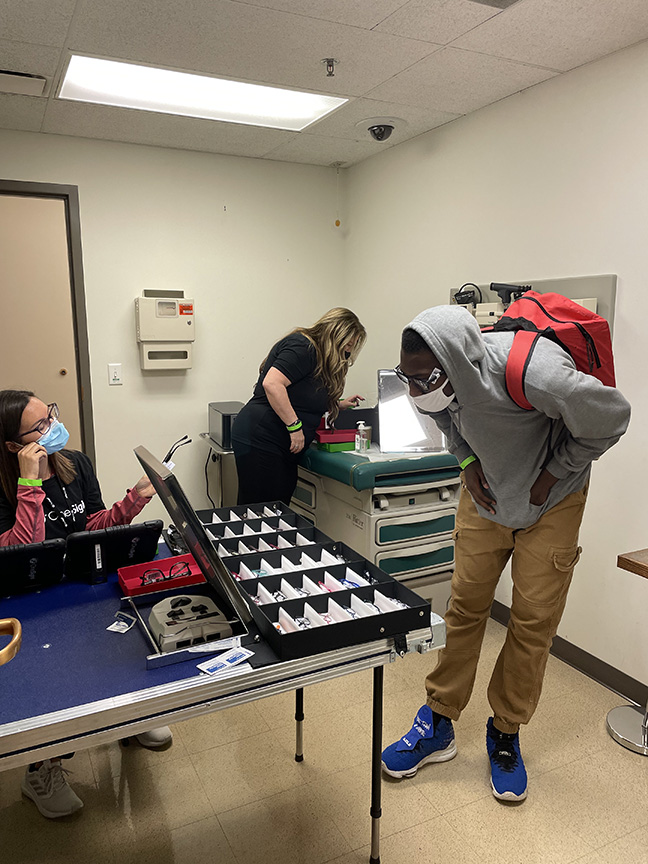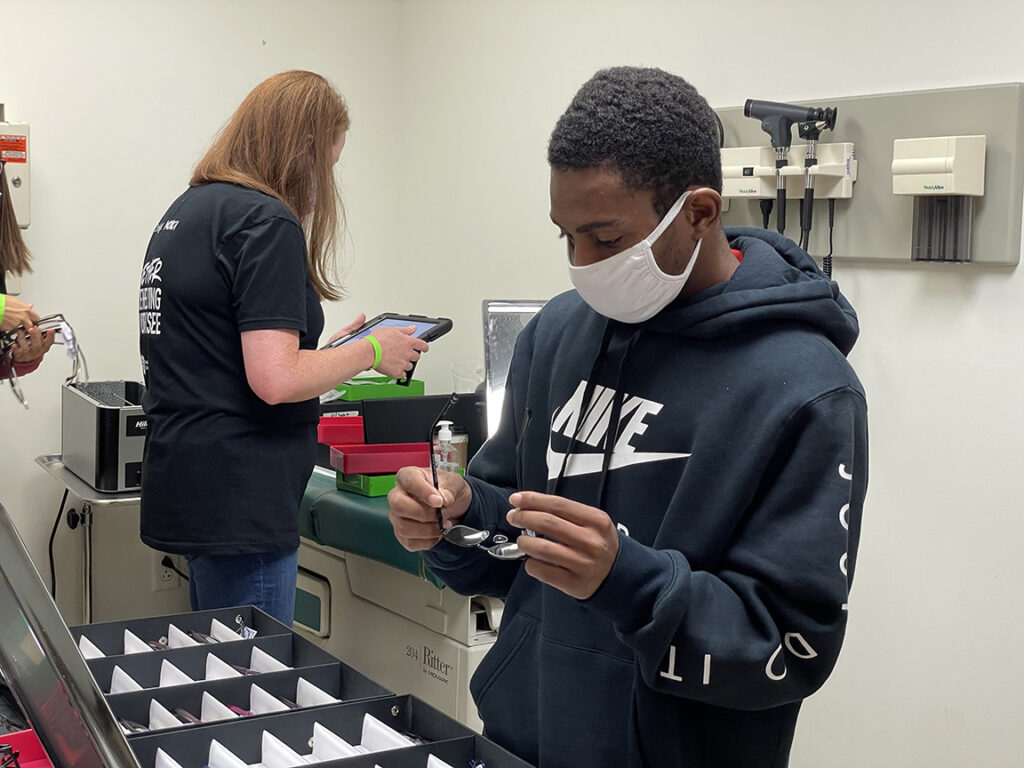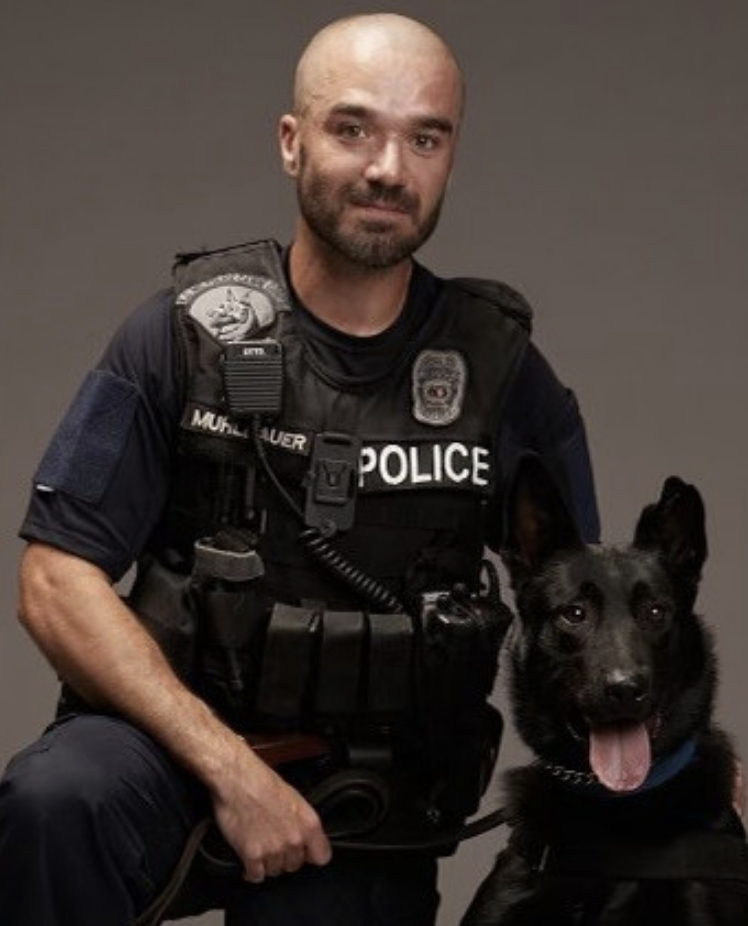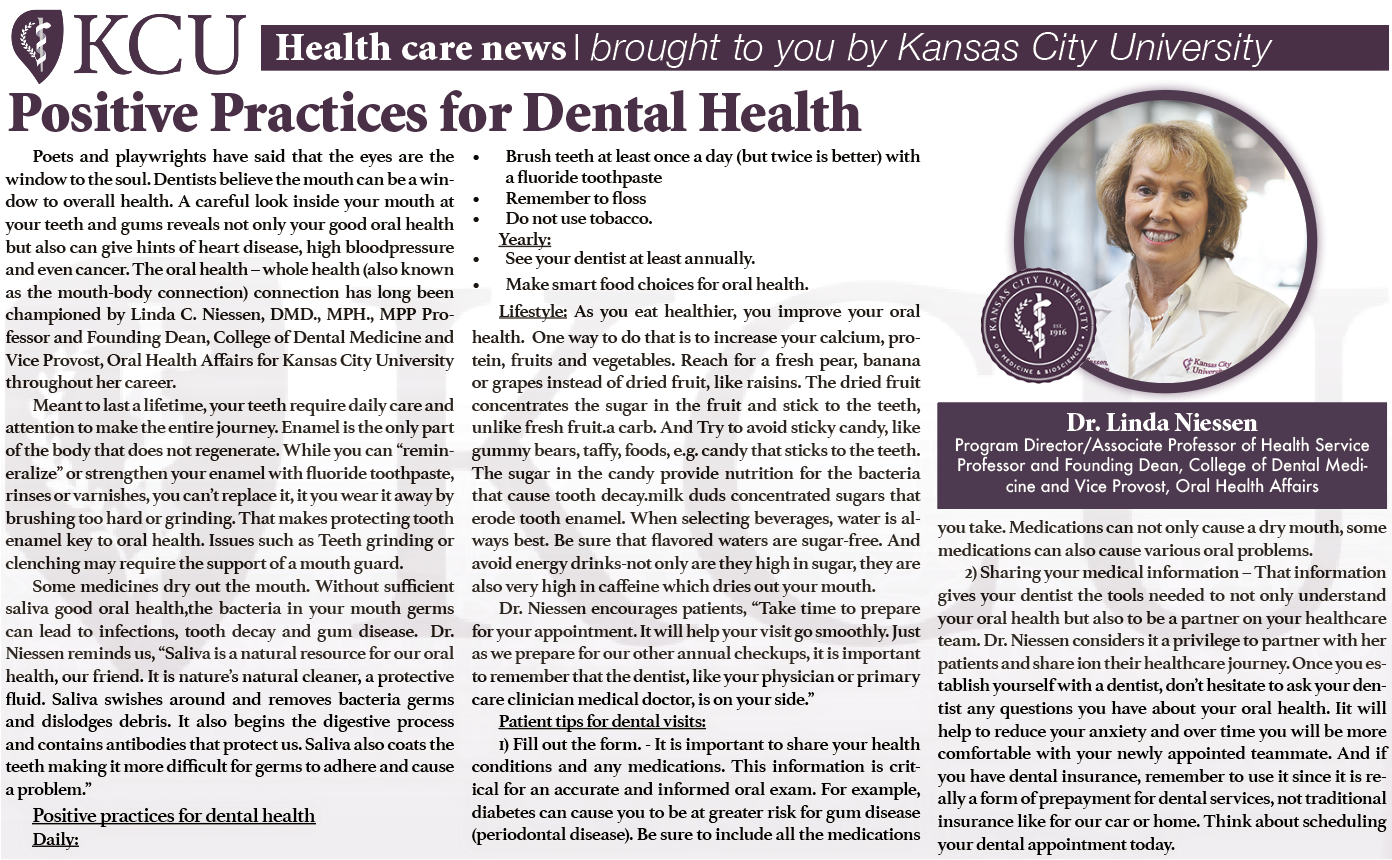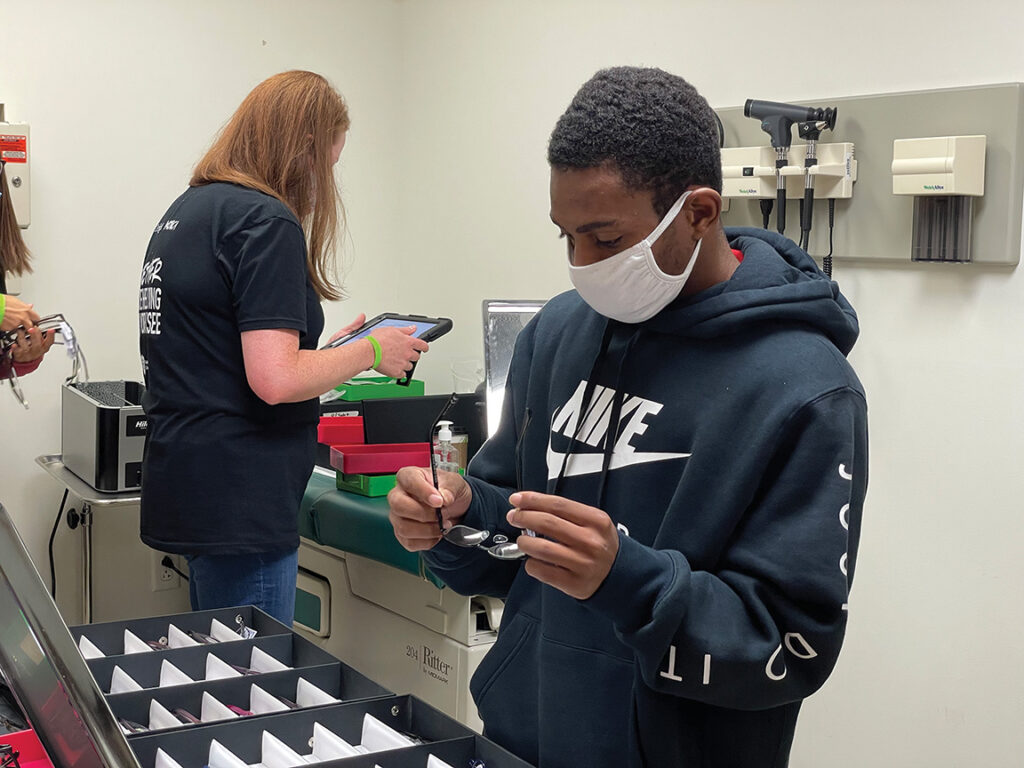
Abby Hoover
Managing Editor
Kansas City University’s (KCU) Score One for Health hosted its annual free vision clinic for local children last week at the Kesselheim Center for Clinical Competence on its campus near Independence Avenue and The Paseo.
The event provided free exams and glasses to children who need them, targeting underserved and uninsured children. Annette Campbell, Director of Score One for Health at KCU, said over 90% of the children that came to the clinic walked away with a new pair of glasses.
“The event this week is a vision clinic for children, and this is an organization called OneSight that travels around the country,” Campbell said. “Score One for Health out of KCU screens children all over Northeast Kansas City, as well as all over Kansas City, and in Joplin where our other campus is. We are routinely checking children for problems with vision, and we’re recommending follow-up to families, but this clinic allows children to get the care that they need for their vision problems right away and they get a pair of glasses the very same day.”
Campbell said the annual OneSight clinic, supported by Fidelity Security Life Insurance Company, helps her organization close the loop on their mission of connecting children to services. OneSight was on campus for five days, and their doctors were assisted by first and second-year students from KCU.
“It’s an exciting clinic. This is our fifth year hosting the event, it’s a week-long clinic,” Campbell said. “Because of COVID, we lowered the goal so that we could make sure we have the clinic run in a way that’s safe, and we aimed for 400 children and we’re going to top that goal. It just really speaks to the need. You know, we’ve gone over a year without vision screenings, and we’ve been over a year for most kids without any eyecare, and to be quite honest, a lot of the kids that we are helping have never even been to an eye doctor anyway, regardless of a pandemic.”
Children who needed them were able to pick out glasses and have them fit on-site to take home that day, in most cases.
“This is such a fantastic charitable foundation, and their goal is to have every child see the best that they can see,” Campbell said. “They have beautiful frames for the kids and the kids get to pick up their own frames. They sit here and wait while their frames are made, unless it’s a very specific somewhat severe prescription, then it will get made at the lab in Ohio and it gets sent to them later.”
The medical students sat next to the optometrists, assisting, observing and scribing as they did the eye exams.
“It’s a great learning experience for our students, but it also really helps the optometrist be as expeditious as possible in seeing the kids, and we are cranking them out,” Campbell said. “Our med students volunteering is helping the clinic, and it’s also helping them learn about the eye, eye structure, eye physiology, all of that stuff.”
Score One has been promoting the clinic’s enrollment for weeks. They gather consent and background information for each child. Most of the children attended through their schools – Whittier, Garfield, Gladstone, Scuola Vita Nuova, Trailwoods, Frontier and Northeast High School – social service agencies. A group from the Mexican Consulate was there Friday with their children. The students are pre-screened at their schools to identify the need for eye care.
“A lot of those kids live in Northeast,” Campbell said. “The Mexican Consulate, those kids, some of them are from Northeast, some of them are from the Westside, some of them are from KCK. But I feel like, especially for Northeast, we have addressed a lot of children’s vision needs this week.”
The children were first screened for COVID-19 symptoms and exposure, then went through a series of eye examinations and tests to gather data before seeing the eye doctor.
Melissa Meyer, a social worker at Frontier Academy of Excellence chaperoned 52 students, between their four campuses, to the clinic on Friday.
“This is amazing because we have a lot of students that don’t have insurance – or even if they do have insurance, because of the way the plan is set up, they can’t get new glasses if they break them or lose them, or if the prescription even changes – so this gives our kids an opportunity to get new glasses, or for students that have never had glasses, the opportunity to be able to get them and see,” Meyer said. “When you watch them and they put on their glasses for the first time, it’s so exciting to hear them and how excited they get and what they’re able to see. It’s just an awesome, awesome opportunity and we’re so thankful that they let us participate.”
OneSight is a leading global nonprofit dedicated to creating a world where lack of access to vision care is no longer a barrier to human achievement and potential. From one-week charitable clinics to long-term self-sustaining vision centers, OneSight delivers quality eye exams and glasses to underserved populations globally. In 33 years, OneSight has served 10 million people in 50+ countries and has provided permanent vision care access to more than 42 million people.
Doctor of Optometry Tom Cunningham has volunteered with OneSight since 1994, when it was called Gift of Sight.
Cunningham said infants should be screened for vision problems, and then children should be screened annually or at least when they hit other milestones, like when entering school, again in third or fourth grade, when they change schools or graduate.
“Why we see such a high need is because when we come into town, there’s a lot of prep work that goes on, and there’s screeners that go out to schools, they’re doing the test,” Cunningham said. “And the most common test that they screen with is to read the charts, so cover an eye, read the chart, and if they fail, then they come here because obviously something’s not perfect, not right. The second thing is, they go to all the teachers, they say, ‘Who in the classroom is struggling? Who can we help out with a pair of glasses?’ Those are the two criteria. If they fail either one of those criteria, then they come here, and because they do such an excellent job screening, we’re able to provide help for 96% of the people that walk in.”
The organization targets historically disadvantaged or low-income areas, or as Cunningham says, “The ones that have the least tend to need the most.” The children they serve are at a disadvantage, for one reason or another.
“We lead with our eyes, so if we don’t see, we can’t do well at school, we can’t desire to move forward,” Cunningham said. “It’s a normal, natural stumbling block. By removing that stumbling block, then you can open up opportunities that weren’t present before.”
Kansas City University students that volunteered gained valuable clinical experience alongside professionals.
“They’re getting the firsthand experience with patient care because they don’t know much about optometry or eyes, or anything like that, but they do see how we interact with patients, how we collect information, because there’s like eight stations that people go through to collect information – how their eyes are doing – and then all that comes down to us and we see a computer screen with all this data,” Cunningham said. “From that, it can determine where we need to look, what we need to do, to address their problems. So it gives an aspiring physician an idea of looking at the overall package of data, to say, ‘How do I interpret that data and come up with a solution that is going to help a patient, and do it in a timely manner?’”
Campbell said because of Score One’s connections with institutions like local schools, and their own health screenings, they’re able to identify those with the highest need and address it. Last week alone, they caught two illnesses so severe that the children were referred to Children’s Mercy Hospital.
“The most precious gifts in life, we all take for granted, so don’t take vision for granted,” Campbell said. “Get an eye exam every year.


